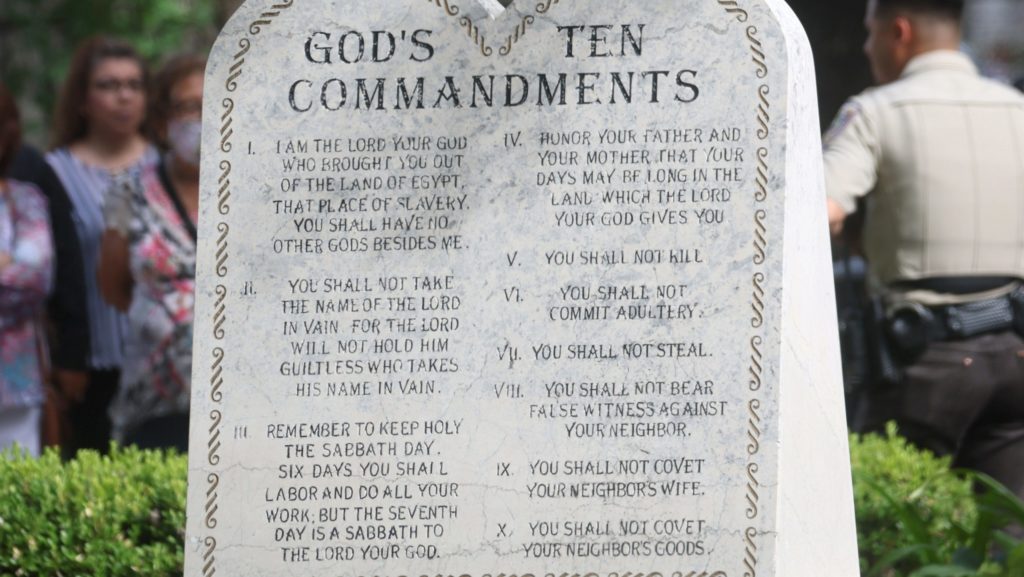A federal judge on Aug. 20 partially blocked Texas from enforcing a law requiring public school classrooms to display the Ten Commandments, finding the law violated the First Amendment.
The Texas law, SB 10, is scheduled to go into effect on Sept. 1. The Texas attorney general has said he will appeal.
A group of plaintiffs, comprised of both religious and nonreligious families, represented by organizations including the American Civil Liberties Union and Americans United for Separation of Church and State, had sued over the law, arguing it violated the First Amendment.
U.S. District Court Judge Fred Biery issued a ruling blocking enforcement of the law in the plaintiffs' school districts. The ruling will still allow the law to go into effect in other districts in the state, however another lawsuit naming three Dallas-area districts is still ongoing.
Biery opened his ruling by quoting the First Amendment, which states, in part, "Congress shall make no law respecting an establishment of religion, or prohibiting the free exercise thereof."
"If government-run public schools also joined hands with religion and had the power to impose religious views, questions arise: Which holy books and prayers would be preferred? The Torah? The Book of Mormon? The Catholic Bible? The New Testament? The Bible as edited by Thomas Jefferson? The Quran? Would Christians be required to face Mecca or observe Hebrew prayer? Would Jews and Muslims be obligated to stand and recite the Lord's Prayer?" the ruling said.
Biery wrote that the law favors particular Christian denominations over other faith traditions and is therefore "likely to burden Plaintiffs' exercise of their sincere religious or nonreligious beliefs in substantial ways."
"Amen," he concluded.
Texas Attorney General Ken Paxton said in a statement, "The Ten Commandments are a cornerstone of our moral and legal heritage, and their presence in classrooms serves as a reminder of the values that guide responsible citizenship."
"Texas will always defend our right to uphold the foundational principles that have built this nation, and I will absolutely be appealing this flawed decision," he added.
Rabbi Mara Nathan, one of the plaintiffs, said in a statement, "As a rabbi and public school parent, I welcome this ruling."
"Children's religious beliefs should be instilled by parents and faith communities, not politicians and public schools," Nathan said.
Rachel Laser, president and CEO of Americans United for Separation of Church and State, said in a statement, "Today's decision will ensure that Texas families – not politicians or public-school officials -- get to decide how and when their children engage with religion."
"It sends a third strong and resounding message across the country that the government respects the religious freedom of every student in our public schools," Laser said.
Rick Garnett, a professor of law at the University of Notre Dame and director of the Notre Dame Program on Church, State & Society, said in comments shared with OSV News, "Given the precedents of both the Supreme Court and the Court of Appeals, it is not particularly surprising that a federal trial court would block this Texas law."
"A similar Louisiana law had already been rejected in the same federal circuit, and lower federal courts should follow, as best they can, the Supreme Court's precedents," he said. "At the same time, this particular opinion is among the most rhetorically bizarre and injudicious ones on record, and it is riddled with historical errors and irrelevancies. Before too long, the Supreme Court will have to clarify its doctrine in this area."

